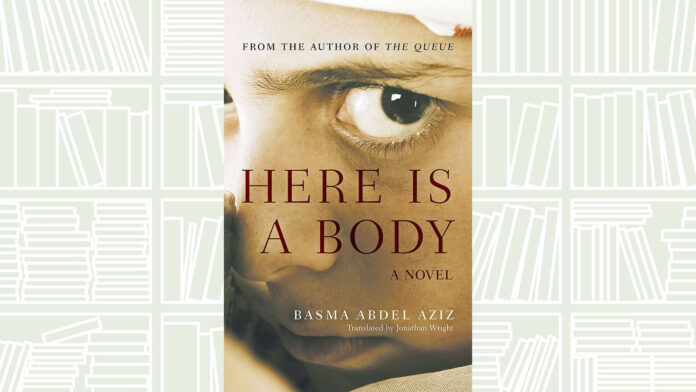CHICAGO: Street children disappear overnight and are forced into state-run rehabilitation programs in award-winning author Basma Abdel Aziz’s newest novel, “Here is a Body.” Resembling an Egyptian city, one that is reeling from one revolution and on the edge of another, the novel follows the lives of Rabie, a child whose life in poverty has forced him into a rehabilitation camp, and Aida, a mother, wife, and schoolteacher who has joined the opposition movement against the state in a sit-in. Their lives are at opposite ends of the spectrum and yet both will face the same outcome as they are manipulated by the powers that be.
Abdel Aziz forces readers head-first into a dark alley where a frightening abduction is taking place. As unaware as her main character, the reader follows a path towards an unknown future. Like Rabie, the reader is forced to accept the information fed to the child by his kidnappers. Rabie is bound, gagged, and crying. The street children have been rounded up in an attempt to make them less of a burden on the state, with the intention of transforming them into heroes. The people in charge never ask them their names. Everyone is simply addressed as “body.”
Caught up in convoluted government schemes where businessmen and state officials are allowed free rein to prey on the less fortunate and force them to serve and defend national interests, Rabie and his companions are conditioned by the general — the highest official in the land — and by religious leaders, while being put through rigorous physical training. They have become children of the state and their new purpose in life is to defend the country.
On the other hand, there is Aida, her husband Murad and her son Adam who are in favor of the deposed leader who has mysteriously disappeared. They exercise their right to protest at the Space, where many others have gathered for weeks.
Translated into English by award-winning translator Johnathon Wright, Abdel Aziz’s novel explores a divided city and its politics. Between the government, media, organizations, and ordinary citizens millions of opinions come together to form their own inclusive worlds. Abdel Aziz explores the idea that abuse comes in many forms, including indoctrination and exploitation; especially when an authoritarian ideology is allowed to bequeath nameless, faceless, and choiceless bodies to fight off their opposition. But there will always be those who do not submit to authority, and will do everything they must do for their freedom.

